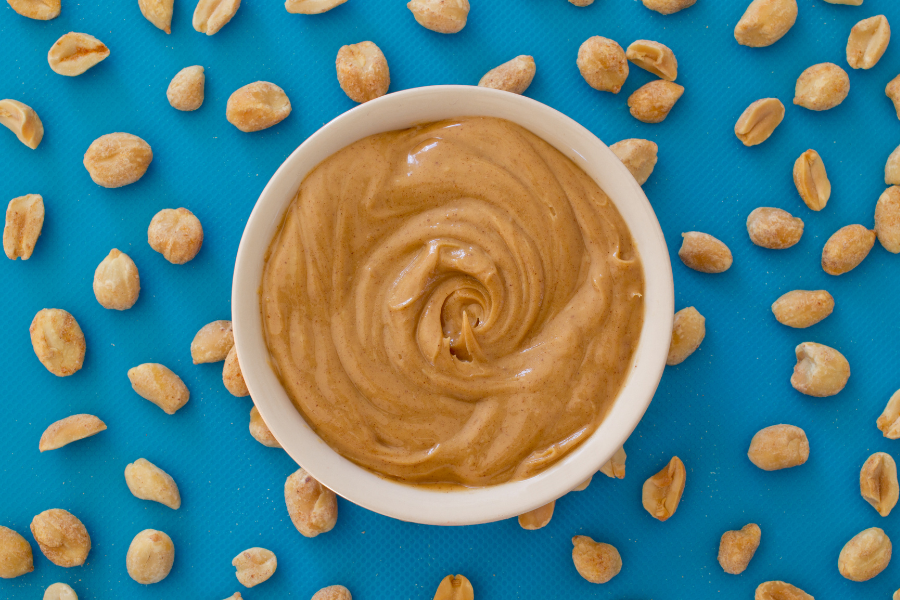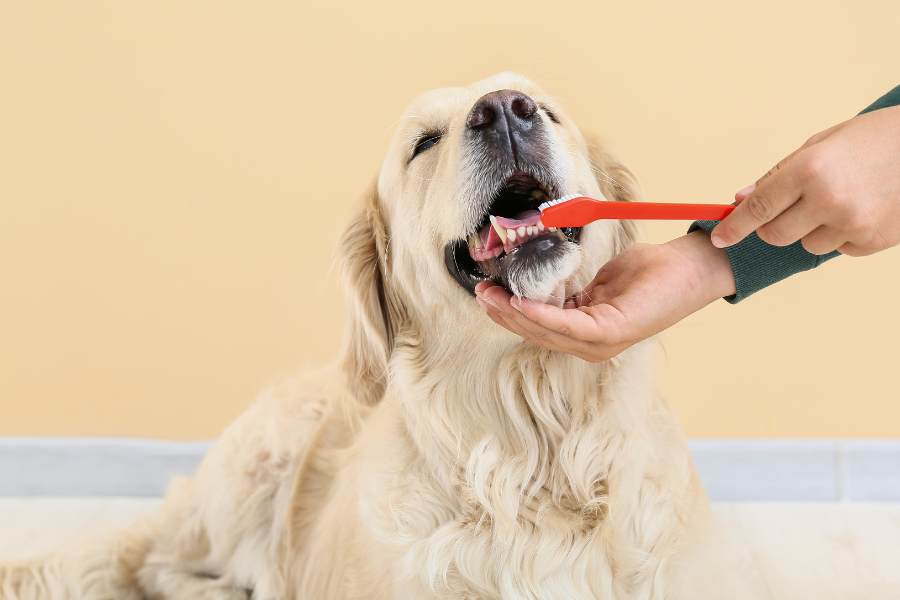Introduction
Peanut butter and dogs—they just go together, almost as well as PB & jelly, right? But is peanut butter actually a safe treat to give your pup? This is a question many new and seasones dog owners ask. In this bog, we'll explore all things peanut butter and dogs, breaking down the benefits of peanut butter, the possible risks, and other tips to keep your dog healthy, and their tail a-waggin'!
The Love Affair Between Dogs and Peanut Butter
Why Do Dogs Love Peanut Butter?
It is no secret that most dogs go absolutely wild for a spoonful of peanut butter, and for good reason - peanut butter is creamy, rich, and savory - a combo that is tough to resist!
Is Peanut Butter Safe for Dogs?
The good news of the day is that, in general, peanut butter is not only tasty, it is not only safe for your dog (if it does not have any additives or artificial ingredients), but it can also is a good source of nutrients, including protein and healthy fats. Praise the heavens! With that being said, moderation is key when it comes to giving it to your pup!
The Role of Peanut Butter in Training
Like other treats, peanut butter can be a great reward for behavior you are trying to develop in training, especially if your dog loves peanut butter. You can also easily hide pills in a spoonful of peanut butter!
The Nutritional Benefits of Peanut Butter
Packed with Protein
Peanut butter contains protein, and a dog's body (and a human's, for that matter) requires protein for multiple processes, including muscle and tissue repair. Amino acids found in protein are also precursors for neurotransmitters like serotonin and dopamine.
Healthy Fats
The healthy fats in peanut butter and other nuts can contribute to a shiny coat and healthy skin. These fats are crucial for maintaining your dog’s overall health and well-being.
Vitamins and Minerals
Peanut butter contains essential vitamins and minerals such as vitamin B, vitamin E, and niacin. These nutrients play a role in everything from immune function to disease prevention to maintaining healthy skin and eyes.
Potential Risks of Feeding Peanut Butter to Dogs
Xylitol Poisoning
Some peanut butter unfortunately contain a sweetener called xylitol, which can be very dangerous for dogs, so it is important to keep a lookout for xylitol on ingredient labels. Xylitol is sugar substitute that is highly toxic to dogs. Even a small amount can cause a rapid release of insulin, leading to hypoglycemia (low blood sugar), seizures, liver failure, or even death.
Caloric Content
Like most nuts and nut butter, peanut butter is very calorie-dense. This is something you should be aware of, as overdoing it and feeding your dog too much peanut butter could cause them to gain weight and become obese (and that could lead to other problems like heart issues and joint issues).
Allergies
Just like humans, some dogs can have allergic reactions to peanuts. Symptoms can include itching, swelling, difficulty breathing, and gastrointestinal upset. If you notice any of these signs, stop giving peanut butter immediately and consult your vet.
How Much Peanut Butter is Safe?
Peanut Butter Serving Size for Dogs
Moderation is truly the name of the game. We know your dog may try to convince you otherwise, but less is more when it comes to feeding peanut butter to your dog. Here are some rough estimates: if your dog is small, a teaspoon should be a safe amount, and for larger dogs you can give them up to a tablespoon. You can always adjust the amount based on your dog's needs, actual size, and their overall diet.
Frequency
Peanut butter should not be a staple of your dog's diet. It should be an occasional treat you give them, in small amounts only.
Monitoring Your Dog
After your give your dog peanut butter for the first time (or any food for the first time) it is important to monitor them for any issues - digestive, or allergic, and call your vet if you have any concerns.
Creative Ways to Serve Peanut Butter
Stuff It in Their Toys!
One of the most popular ways to serve peanut butter is by stuffing it into toys like Kongs. We do this with our dog, and she loves it! It provides mental stimulation and can keep your dog occupied for a long time.
Using PB For Training Treats
Use some (i.e. a small amount, i.e. not a lot!) peanut butter as a reward during training sessions can motivate dogs during training sessions, allowing them to learn tricks and commands more quickly!
Homemade Peanut Butter Recipes
There are plenty of fantastic dog treat recipes that include peanut butter. The internet is good for some things, at least, and dog treat recipes are one of them! Peanut butter combines well with virtually everything, from pumpkin to oats and apples.
Common Myths About Dogs and Peanut Butter
Myth 1: All Peanut Butter is Safe
This is erroneous! While some peanut butters can be safe, other peanut butters contain xylitol, which is toxic for dogs, in addition to other artificial ingredients that can be harmful for your pup.
Myth 2: Peanut Butter Causes Hyperactivity
There's no science to support this. Who started this rumor? We want to talk to them.
Myth 3: Peanut Butter is a Complete Food
While peanut butter is nutrient-dense, it by no means should replace your dog's regular, well-balanced dog food.
Signs of Peanut Butter Overconsumption
Weight Gain
If your dog is gaining weight, it might be due to overconsumption of high-calorie treats like peanut butter. Monitor their weight and adjust their diet as needed.
Digestive Issues
Too much peanut butter can cause digestive problems such as diarrhea or constipation. If you notice any changes in your dog’s stool, cut back on the peanut butter.
Behavioral Changes
Changes in behavior, such as increased lethargy or hyperactivity, can also indicate that your dog is consuming too much peanut butter. Moderation is key.
Conclusion
While some of the information we covered about peanut butter and dogs is intuitive, we hope you learned something today! Let's sum things up, shall we? Natural peanut butter, without added ingredients like xylitol, and when given in small amounts, can be a-okay to give to your dog. They will most likely love it. If you have never given peanut butter to your dog, or if they accidentally consume too much, keep an eye out for any signs of an allergic reaction or GI distress. If you do notice any symptoms, reach out to your vet as soon as possible.
This may be corny, but a line from the alcohol industry can be appropriate when it comes to dogs and peanut butter: serve responsibly!
FAQ
Which Peanut Butter is Safe for Dogs?
Unsweetened and natural are the key things to look for when shopping for peanut butter for your dog. Organic is great, but it is still wise to read the ingredient list, making sure it is free from artificial flavorings and colorings, including xylitol. P.S. - you can also make your own peanut butter at home! It is pretty easy!
Is Jif Peanut Butter Safe for Dogs?
Jif should be okay for your dog. The last we checked, Jif did not contain any harmful additives or xylitol in their formulation. It does contain some added sugar and oils, however, so if it irritates your pups stomach you may want to try a more natural brand with no sugars or oils added. If you are concerned about feeding Jif to your dog, either don't, or consult your vet first.
Is Skippy Safe for Dogs?
Skippy is another peanut butter that can be okay for dogs, but like Jif, it has some added ingredients (oils, sugar, and salt) that may not be the best for a dog, especially if given regularly to them.
References
1) Arya SS, Salve AR, Chauhan S. Peanuts as functional food: a review. J Food Sci Technol. 2016 Jan;53(1):31-41. doi: 10.1007/s13197-015-2007-9. Epub 2015 Sep 19. PMID: 26787930; PMCID: PMC4711439.
2) Piscitelli CM, Dunayer EK, Aumann M. Xylitol toxicity in dogs. Compend Contin Educ Vet. 2010 Feb;32(2):E1-4; quiz E4. PMID: 20473849.



